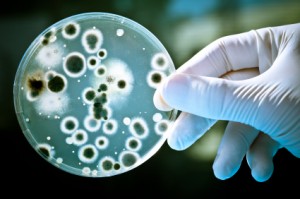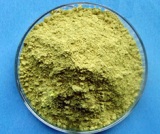Herbalzym is an alternative medical organization dedicated to developing treatment protocols for a diversity of diseases using natural medicine. For over 10 years, Herbalzym formula had been used with great success on so many terminally ill patients. It had been proven over and over again to be effective in clinical trials.
 We now know that red palm oil contains the high concentration of palmitic acid (the saturated fatty acid). Palmitic acid is a well known cytotoxic agent against cancer cells. Saturated fats from animal and vegetable sources provide a concentrated source of energy in the diet; they also provide the building blocks for cell membranes and a variety of hormones and hormone like substances. They also enhance the immune system. At least with respect to cancer, plant-based sources of saturated fat are good for us. Palm oil, palm kernel oil and coconut oil are three of the few highly saturated vegetable fats. Of the tropical oils, coconut oil gets the most attention, while palm oil gets the mostly ignored….
We now know that red palm oil contains the high concentration of palmitic acid (the saturated fatty acid). Palmitic acid is a well known cytotoxic agent against cancer cells. Saturated fats from animal and vegetable sources provide a concentrated source of energy in the diet; they also provide the building blocks for cell membranes and a variety of hormones and hormone like substances. They also enhance the immune system. At least with respect to cancer, plant-based sources of saturated fat are good for us. Palm oil, palm kernel oil and coconut oil are three of the few highly saturated vegetable fats. Of the tropical oils, coconut oil gets the most attention, while palm oil gets the mostly ignored….
Prostate problems such as benign prostatic hyperplasia (BPH), prostatic intra-epithelial neoplasia (PIN), prostatitis and prostate cancer have been recognized as problems largely related to androgens (male sex hormones) and genetic factors. All men will develop prostate cancer if they live long enough. Prostate cancer is somewhat unusual, compared with other types of cancer. More than 95% of prostate cancers are adenocarcinomas, cancers that develop in glandular tissue. Male hormones such as testosterone are generally believed to be causatively associated with prostate cancer. We know that testosterone stimulates the prostate to grow. But, several recent studies show that a man’s susceptibility to prostate cancer may be influenced more by his exposure to the female hormone, estrogen, than to the male hormone, testosterone.
A small amount of estrogen (female sex hormone) is necessary …
One of the biggest misconceptions people have is that saturated fats increase the amount of bad cholesterol in blood. Cholesterol, however, forms part of the outer membrane that surrounds every cell. Cholesterol is used to insulate nerve fibres (and so make nerve signals travel properly) and make hormones, which carry chemical signals around the body. Without cholesterol, your body wouldn’t work – it’s vital to ensure the body’s normal function.
There are three main types:
Low-density lipoprotein (LDL): this carries cholesterol from the liver to the cells and, if supply exceeds demand, can cause harmful build-up of cholesterol
High-density lipoprotein (HDL): this takes cholesterol away from the cells and back to the liver, where it’s either broken down or excreted
Triglycerides: fats carried in the blood from the food we eat
Triglycerides and cholesterol are …
 Mushrooms are unique. Unlike other plants, they do not convert the sun’s rays into energy. Mushrooms belong to the macrofungi, because their fruiting structures are large enough to be seen with the naked eye. They get nutrition from animal and plant matter. Many species are quite specific about their food source and will be found only under or near certain kinds of trees-some under pines, others under oak, etc. Mushrooms secrete digestive enzymes into the environment and then absorb the products of digestion for their nourishment. This decomposition process benefits the ecosystem. It decomposes dead plant and animal matter that, without the mushrooms, would accumulate to unmanageable levels, and it returns nitrogen, phosphorus, and other nutrients to the …
Mushrooms are unique. Unlike other plants, they do not convert the sun’s rays into energy. Mushrooms belong to the macrofungi, because their fruiting structures are large enough to be seen with the naked eye. They get nutrition from animal and plant matter. Many species are quite specific about their food source and will be found only under or near certain kinds of trees-some under pines, others under oak, etc. Mushrooms secrete digestive enzymes into the environment and then absorb the products of digestion for their nourishment. This decomposition process benefits the ecosystem. It decomposes dead plant and animal matter that, without the mushrooms, would accumulate to unmanageable levels, and it returns nitrogen, phosphorus, and other nutrients to the …
Adenosine is a naturally occurring purine nucleoside that forms from the breakdown of ATP (adenosine triphosphate). ATP is the primary energy source in cells for transport systems and many enzymes. Adenosine facilitates tumor survival by a variety of mechanisms. Adenosine can bind to purinergic receptors in different cell types where it can produce a number of different physiological actions. Adenosine accumulates in solid tumors and stimulates tumor growth and tumor angiogenesis while imparting tumor resistance to the immune system.
Extracellular adenosine initiates most of its effects through the activation of adenosine receptors. There are at least four subtypes of the adenosine receptor A1, A2A, A2B and A3 receptors. Adenosine receptors are all coupled to G-proteins and the A1 and A3 subtypes are associated with inhibitory G-proteins. Each of these four cell …
Chronic inflammation has been found to mediate a wide variety of diseases, including cancer, cardiovascular diseases, diabetes, arthritis, Alzheimer’s disease, pulmonary diseases, and autoimmune diseases. The arachidonic acid pathway constitutes one of the main mechanisms for the production of inflammation, as well as controlling homeostatic function. Arachidonic acid (AA) is an unsaturated fatty acid that the body uses to synthesize regulatory molecules such as prostaglandins (hormone like chemical messenger) and thromboxanes (involved in platelet aggregation and blood clotting). Arachidonic acid (AA) is a form Omega 6 fatty acid. Arachidonic acid (AA), gamma linolenic acid (GLA) and linoleic acid (LA) are three forms of Omega 6 fatty acids. Linoleic acid is converted to gamma-linolenic acid in the body and then further broken down to AA. Omega 6 fatty acid in the …
Cancer is a serious and complex disease which we feel requires a multi-disciplinary, multi-modality treatment approach in order to have great success and the best possible outcome. The problem is that current conventional cancer treatments are crude. Surgery to cut out the cancer can work, if it has not spread elsewhere in the body. Or, given that rapidly dividing cancer cells are more vulnerable to damage than normal cells, another approach is to blitz them with toxins -chemotherapy drugs – or radiation.
In comparison, immunotherapy revolves around bolstering the body’s own defences so that they can mount an effective attack on cancer. Everyone has the power within them to heal cancer and all we have to do is to find a way to unlock our inner potential. Cancer immunotherapy is the …
 Super bacteria, also referred to as superbugs, are bacteria that have grown resistant to most antibiotics. Overuse of antibiotics both in conventional livestock feed and in human medical applications has led to increasing bacterial resistance to antibiotic drugs. Microorganisms are weak creatures but they have their own way to protect their population and this is called mutation. A drug like penicillin targets an enzyme, and it’s easy for an organism to develop a single mutation to get past that. The development of new super bacteria types or mutation of the ones already known is of great unease to disease specialists. Concern exists that some strains could develop so much resistance to antibiotics that they would become virtually untreatable.
Super bacteria, also referred to as superbugs, are bacteria that have grown resistant to most antibiotics. Overuse of antibiotics both in conventional livestock feed and in human medical applications has led to increasing bacterial resistance to antibiotic drugs. Microorganisms are weak creatures but they have their own way to protect their population and this is called mutation. A drug like penicillin targets an enzyme, and it’s easy for an organism to develop a single mutation to get past that. The development of new super bacteria types or mutation of the ones already known is of great unease to disease specialists. Concern exists that some strains could develop so much resistance to antibiotics that they would become virtually untreatable.
When doctors prescribe …
 Quercetin is one of the most ubiquitous flavonoids found in many fruits, vegetables, nuts, and red wine, and exerts anti-inflammatory and anti-carcinogenic activities. Research shows that quercetin may help to treat and prevent colon cancer. Quercetin can affect growth of colon cancer cells by both decreasing polyamine biosynthesis and inducing apoptosis. Polyamines are involved in cell growth and differentiation.
Quercetin is one of the most ubiquitous flavonoids found in many fruits, vegetables, nuts, and red wine, and exerts anti-inflammatory and anti-carcinogenic activities. Research shows that quercetin may help to treat and prevent colon cancer. Quercetin can affect growth of colon cancer cells by both decreasing polyamine biosynthesis and inducing apoptosis. Polyamines are involved in cell growth and differentiation.
The Wnt signaling pathway plays a pivotal role in cellular developmental processes and human carcinogenesis. Inhibition of expression of cyclin D(1) and survivin as well as the Wnt/beta-catenin, p21-RAS signaling pathway could be qualified as promising targets for innovative treatment strategies of colon cancer. Quercetin inhibits these pathways. Moreover, Quercetin activates AMPK (AMP-activated protein kinase), a physiological cellular energy sensor, through ROS …
Consumption of red and processed meat has been associated with an increased risk of colon cancer, a major cause of death in affluent countries. Scientists have offered a number of explanations for the link between red meat and colon cancer. One theory blames HCAs (heterocyclic amines), chemicals produced when meat is cooked at high temperatures. HCAs may play a role, but since high levels can also be present in cooked chicken, they are unlikely to be the whole explanation. In all cases the worry is confined to red meat, not chicken. Preservatives have also been implicated in the case of processed meats; nitrates are a particular worry, since the body converts them to nitrosamines, which are carcinogenic.
Epidemiological and experimental evidence supports the hypothesis that heme iron present in meat promotes …